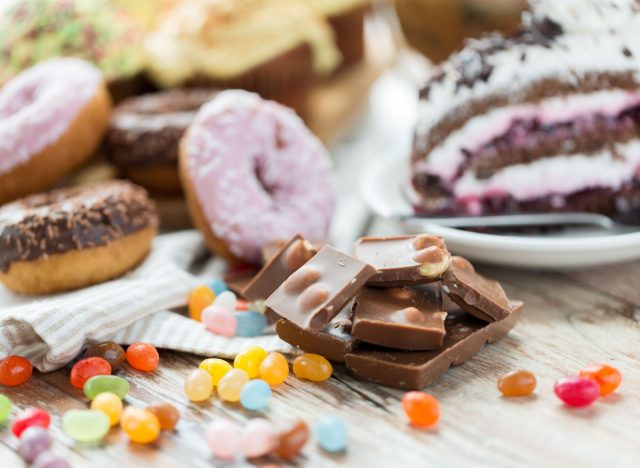When you’re looking to lose weight, it’s likely that your mind immediately gravitates toward tweaking your diet and workout routine. What you may not consider is the potential impact of chronic inflammation. Research suggests that inflammation can cause the number on the scale to rise. So even when you’re seemingly doing everything right, chronic inflammation may help explain why you’re not losing weight. We spoke with Jamie Lee McIntyre, MS, RDN, a nutrition consultant at JamieLeeRDN.com, who breaks down some of the best ways to reduce inflammation and make weight loss easier as you age. Being in the know is the first important step—the second is taking action!
“Inflammation in the body is a natural process that helps with healing from an injury or illness. However, increased or prolonged inflammation can impede weight loss efforts,” McIntyre explains. “In fact, the link between weight gain and inflammation goes both ways, with one contributing to the other and vice versa in a cyclical fashion. This is due to hormone changes that occur within the body that impact hunger and metabolism.”
Incorporating an anti-inflammatory diet and lifestyle into your day-to-day can help you manage and lose weight and improve your health. Keep reading to learn about McIntyre’s best ways to reduce inflammation and make weight loss easier as you age.
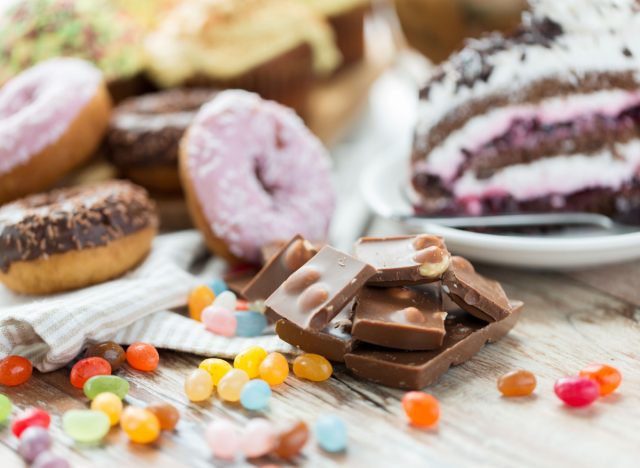
Decreasing or cutting processed foods from your diet is an excellent way to limit the amount of added sugar you consume, along with other additives that can cause inflammation. But keep in mind that eating healthily should also be enjoyable and accessible.
“I recommend eating whole foods often and enjoy your must-have sweets made with added sugars in moderation,” McIntyre suggests. “Be sure to read labels, too—aim for five to eight grams of sugar or less per serving. The ‘all or nothing’ mindset can sabotage weight loss efforts. Fortunately, the market is full of creative alternatives that offer up the same sweet flavor and nostalgic taste of your favorite food and drinks without the added sugars.”
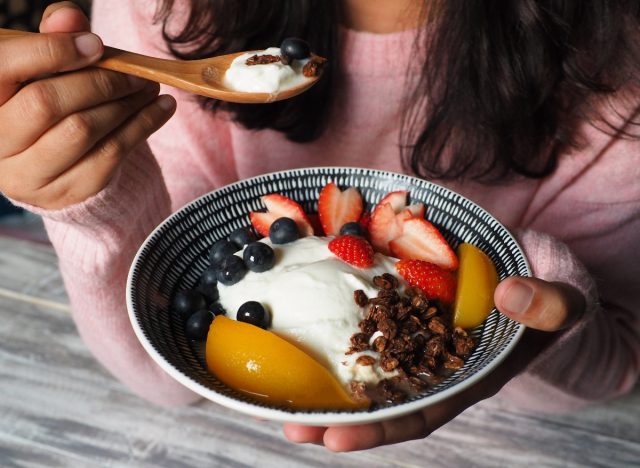
A happy gut is a healthy gut! McIntyre’s next tip is to incorporate probiotics into your diet. “Probiotics are friendly bacteria that help balance the gut environment for optimal functioning and are added to foods like yogurt, cottage cheese, and kefir, or found in fermented foods like sauerkraut, kombucha, miso, or kimchi. If you struggle to get enough probiotics in your diet, you might consider supplemental form,” she says.
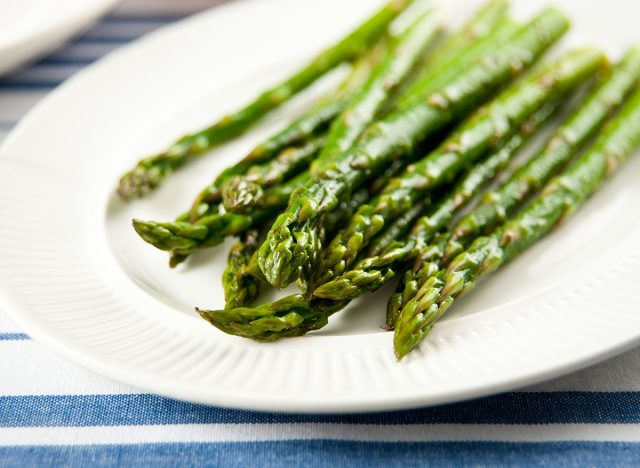
Just as it’s important to get your fill of probiotics, don’t forget about working prebiotics into your diet! “Prebiotics are the food probiotics thrive off of,” McIntyre says. Prebiotics can help decrease inflammation, boost your gut health, control blood sugar, and improve your immune health. You can find prebiotics in foods like seaweed, asparagus, chicory root, onion, garlic, apples, oats, wheat bran, flaxseeds, and Jerusalem artichoke.
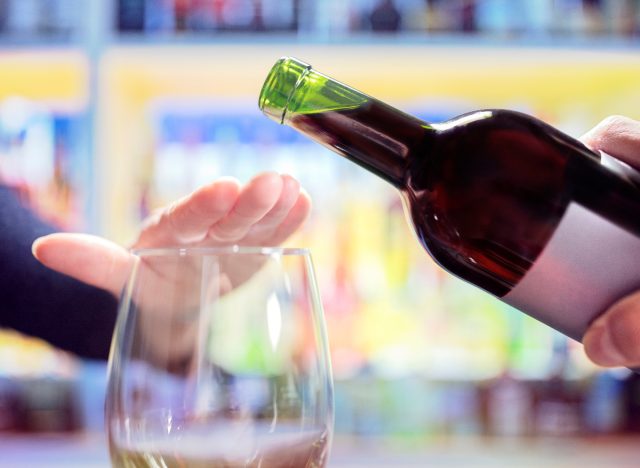
Alcohol is a major culprit that can promote inflammation in your gut, disturb crucial microflora in your gut, and hinder the absorption of important nutrients. At your next happy hour or night out on the town, McIntyre suggests sipping on a healthy mocktail instead of a sugar-packed alcoholic beverage.
“There are plenty of alternative ways to socialize and sip fizzy, tasty bubbles without the alcohol,” McIntyre says. “I personally enjoy functional sodas like Poppi in fruity flavors like Strawberry Lemon and Cherry Limeade, poured over ice and finished with a fresh fruit garnish! I also love sparkling mineral water with a splash of pomegranate juice with fresh mint.”

Last but not least on McIntyre’s list of effective ways to reduce inflammation for easier weight loss? Make sure you’re getting enough rest. Your goal should be to get seven to nine hours of restful shuteye each night.
“Insufficient sleep can aggravate existing inflammation in the body and contribute to new inflammation,” McIntyre explains. “Think that glass of wine is helping you to nod off? Guess again. Alcohol not only contributes to inflammation, but it also impairs sleep quality. Swap your alcoholic nightcap with a calming chamomile or herbal tea with anti-inflammatory spices like ginger or turmeric, or a soothing lightly sweetened hot cocoa blend.”
Alexa Mellardo

